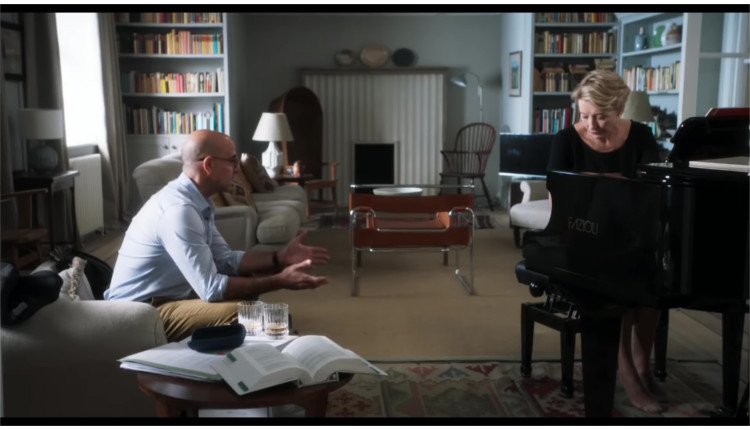A Frustrating Tease of Themes | The Children Act Review
In some respects it was incredibly unfortunate to be 13 when Joe Wright’s adaptation of Ian McEwan’s Atonement was released. Through no fault of the film/novel’s quality, it put a notion into me that McEwan’s works where stiflingly middle brow and middle class and best destined for people closer to middle age. Whilst some of his later novels do fall into this category (Saturday, Amsterdam, Solar), this was a deeply harmful notion to develop because it meant that I waited years before diving into Ian McEwan’s bibliography, one of the strangest and darkest to ever reach the upper echelons of British literary establishment.
In the last ten months there have been three screen adaptions of McEwans work, scripted by the novelist himself, that aim to capture the weirdness that permeates his finest work, and bring the themes that he’s spent nearly five decades obsessing over to the screen; grotesque bodily aberrations, the pollution of childhood innocence and the way trauma can latch itself to memory. With the success of A Child in Time and On Chesil Beach, Richard Eyre was presented with an opportunity to complete a hat trick of adaptions with The Children Act, which is unfortunately the most undercooked adaptation of the three.
The Children Act’s plot reads like something McEwan could have dreamed up with his old drinking buddy Christopher Hitchens: A High Court Judge, Fiona May (Emma Thompson) is asked to rule on a case where a devout Jehovah Witness family insist that there 17 year old son, Adam (Fionn Whitehead), refuse a blood transfusion that would save him from a leukemia. As the case goes on May insists on visiting the young man and develops a strange relationship with him, as she grows more distant from her and her ascetic husband Jack (Stanley Tucci).
A joint production between the BBC and that recent boutique giant, A24, The Children Act’s set up alone is enough to draw comparisons to the type of teleplay that the BBC was famed for in the 1970s. The premise alone is a deliciously messy morality play that opens so many doors for exploring issues like love, science, morality and religion. Unfortunately, the film never quite manages to explore these themes or ideas in anything more than a superficial way, and at times feels deeply confined by its two hour runtime. Largely, this is due to the nature of adaptation and not necessarily on the part of the filmmakers. For one thing Emma Thompson is absolutely fantastic as May, delivering a performance that’s frequently non-verbal. Fionn Whitehead, on the other hand, who was absolutely electrifying in last year’s Dunkirk, proves that he’s just as talented an actor when he’s speaking. Certainly, between the two of them they almost carry the film.

As previously noted, the issue with The Children Act is it never quite manages to really examine its themes with any sense of depth and it seemed to tease a more interesting novel then actually stand on its own feet. I haven’t read the novel, but the mere glances of nods and homages that McEwan slips in were enough to convince me that I need to read the book to get more than a cliff notes idea of the story.
The film draws a lot of attention to its evocation of Joyce’s The Dead, Greene’s The End of the Affair, and Yeats “Sally Gardens” and more subtly alludes to Dickens Bleak House and Dostoevsky’s The Possessed, but these are never fleshed out to being more than McEwan trying to show us his bookshelf. With more time to make sense of these though it could have added a new depth to the film, which is ultimately a perfectly fine way to pass two hours but avoids capturing the majesty of McEwan’s prose. Perhaps most successfully, it might encourage a few viewers to delve into his oeuvre.

